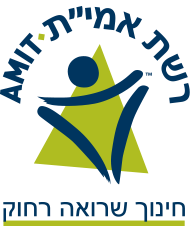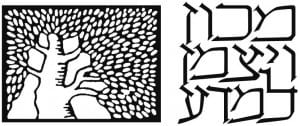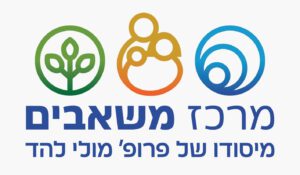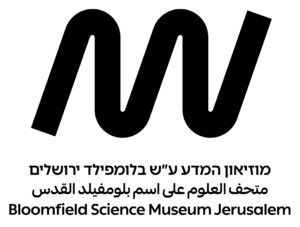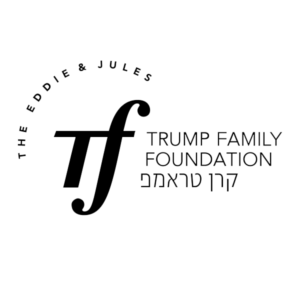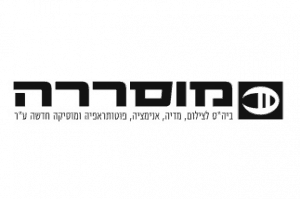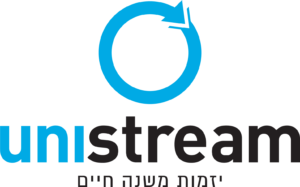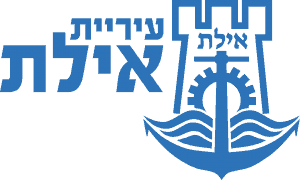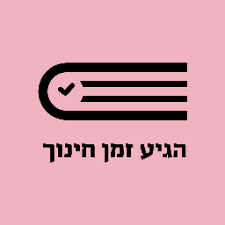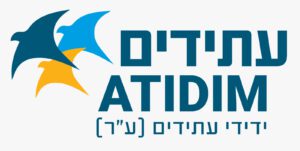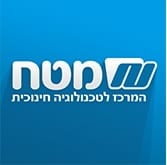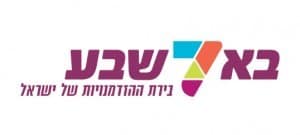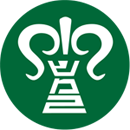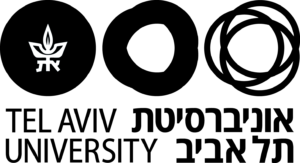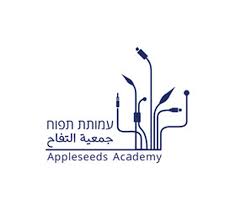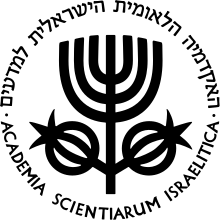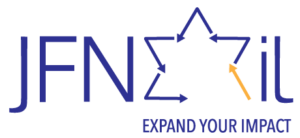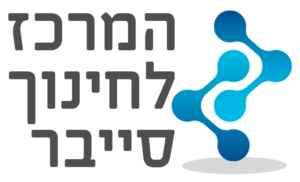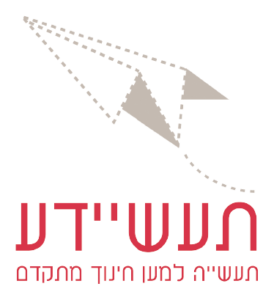The city of Sderot in southern Israel is home to 35,000 residents. Hamas terrorists infiltrated the city on October 7th, causing numerous casualties and leading to a complete evacuation of the city. Before the war, the city operated two high schools, both run by the Amit School Network, a secular school with 1,300 students, and […]
Back in 2012, the foundation approached the Weizmann Institute to create a framework for operating professional learning communities (PLCs) for physics teachers across the country. The idea was to encourage the teachers to embrace student-centered teaching approaches and to sharpen their professional expertise together. Three hundred teachers participate in these PLCs every year. As of […]
Education during wartime requires creativity and perseverance. Teachers, therapists, and volunteers found themselves thrown into an abnormal reality, confronting enormous challenges and trying to create order in a hectic situation. This involves establishing learning groups at evacuee centers, reusing physical spaces as temporary schools, combining professional staff with volunteers, integrating trauma specialists, providing online learning, […]
The Community Stress Prevention Center (CSPC) was established in 1981 by Professor Mooli Lahad, to serve as a frontline trauma treatment center in Northern Israel. Mooli Lahad is a world-renowned expert in psychotrauma and the founding president of the International Stress Prevention Center. In consultation with the Ministry of Education’s psychology unit, we approached CSPC […]
In January 2023, the Ministry of Education, in collaboration with the University of Haifa, embarked on a three-year process of adapting the national mathematics curriculum in middle school. The Ministry was convinced that alongside its traditional focus on procedural fluency and abstract thinking, the curriculum should also include applied modelling and reasoning skills. A joint […]
The City of Haifa is home to 300,000 residents, of which 20,000 are secondary school students. In 2012, the municipality partnered with the foundation to increase graduation rates of the five units track in mathematics, leading to a growth from 16% in 2013 to 24.5% in 2022. In middle school, the municipality operates 51 excellence […]
After the October 7th attack, approximately 25,000 residents of Israel’s southern and northern borders were evacuated to Jerusalem. They were removed from their homes, staying in 51 hotels and guest houses, now for more than two and a half months. They are facing enormous challenges in all areas of life, receiving assistance from government authorities […]
The Trump Foundation’s roadmap for middle schools aims to help Israel become one of the top 15 countries in the world excelling in mathematics by 2028. This benchmark is measured by the OECD’s PISA international assessment which focuses on the level of readiness for 21st century life and work. It concentrates on skills for solving […]
In 2022, the Trump Foundation convened an international conference on education with guest keynote speakers, John Hattie, Lee Shulman, and Jim Knight, attended by 900 Israeli participants. The conference was held at the Tel Aviv Port, in collaboration with seven additional philanthropic foundations, each showcasing examples of education programs from its portfolio. The conference ended […]
The Naggar School of Photography, located in the Musrara Neighborhood of Jerusalem, is a veteran vocational art institution, teaching a three-year program to 160 students each year. The school, which was the first grantee partner of the Trump Foundation, organized a photography exhibition in 2012 on “the art of teaching”. This exhibition marked the foundation’s […]
The southern city of Eilat, a tourist destination in normal days, is home to 55,000 residents. Now, the population has more than doubled, with 60,000 evacuees immediately relocated to the city’s hotels. A month later, the city is grappling with the challenges of overcrowding, displaced and posttraumatic youth, violence, and substance abuse – the human […]
Immediately after the October 7th attack, 60,000 of the evacuated families arrived in Eilat, of which 14,000 are school students. They were accommodated temporarily in the city’s hotels, receiving emergency support and provisional educational services. Five new high schools were opened, for the communities of the Kibutzim, Sderot and Kiryat Shmonah. The teaching is conducted […]
Immediately after the war started, we decided to use our digital platform “It’s Time for Education” as a focal point of information for educators across the country. The magazine increased the frequency of its publications to three articles per day, including case studies of educational practice and pedagogic tools to deal with trauma. We collaborated […]
Following the war, approximately 50,000 students have been evacuated with their families from the north and south of Israel. Their school year is now on halt, with substantial efforts across the country to resume learning as much as possible. Success is very limited, and classes are half filled, particularly the excellence classes and the five […]
The Center for Educational Technology (CET) is among the first grantee partners of the Trump Foundation. In 2012, CET created the “Virtual High School”, that allowed high school students in the periphery to study mathematics and physics at the five units level. Since then, CET has been collaborating with the foundation in many programs, including […]
Meytiv Center for Positive Psychology is an expert in growth mindset and development of cognitive resilience among teachers and students. Meytiv is a veteran partner of the foundation, with numerous joint programs along the years for students and teachers of mathematics and physics. It is also a close partner of the Ministry of Education, and […]
The traditional expectation for graduates of education systems is to be prepared to apply the knowledge and skills they acquired in school to real world contexts. In the 21st century, this expectation is challenged by a highly technological, cross cultural and fast-moving world. Therefore, international standards for education, now include transfer and communication proficiencies, such […]
Japan is one of the top 10 countries on the 2018 PISA international assessment with 18.3% of its students excelling in mathematics, compared to 8.8% in Israel. As in other Asian education systems, such as Singapore, Shanghai and Taiwan, Japan also gives significant priority to education, with substantial public investment and a continuous push from […]
This year marks the 10th anniversary of “It’s Time for Education”, a digital magazine established by the foundation in 2014. The magazine was initially created to support the foundation’s attempt to attract talent into teaching mathematics and science in high schools. In recent years, however, the magazine expanded to provide educational content to a wider […]
Be’er Sheva, which comprises 215,000 residents, is the largest in the Southern District and the ninth populated city in Israel. With a university, a hospital, a developing high-tech industry, and an improving education system, Be’er Sheva succeeded in recent years to climb up to group 5 (out of 10) on the national socio-economic index. Among […]
High proficiency English language skills are essential for the 21st century job market, particularly in high-tech professions that engage with global markets. The study of English is compulsory in Israeli elementary schools and is a required test on the high school matriculation exams. Forty three percent of the twelfth-grade students complete their high school studies […]
Following the study of Aaron Institute and the recommendation of the Perlmutter Committee, the government recently approved a new policy aiming to increase the rate of students earning a “tech- matriculation” certificate from 9% to 15% within five years. A tech-matriculation is the combination of five-units in mathematics, English, physics and/or computer science. This package […]
The “Startup Nation” is comprised mostly of men. Only 10% of the CEOs of startup companies, 16% of VC funds’ partners, 28% of the R&D engineers and 23% of the IDF’s tech positions are filled by women. The assumption is that education would be critical to changing this biased trend. In the recent decade, the […]
The evolving role of computers, codes, algorithms, and artificial intelligence is spreading in the world and is already reflected in the PISA mathematics framework. From 2022, the framework includes skills of computational thinking that are intertwined into the mathematical problem-solving cycle. These skills include pattern recognition and decomposition, using algorithms to analyze and solve problems, […]
During November 2022, the foundation organized an international education conference, inviting colleague foundations in the education field to contribute in terms of content and financial support. This led to a collaboration with seven philanthropic foundations – Yad Hanadiv, Davidson, Arison, Lautman, Beracha, Posen, and Leon. The conference that was held at the Tel Aviv Port, […]
The heart of the PISA framework is to encourage education systems around the world to foster profound connections between what is learned in school and the real world that awaits the students. By finding solutions to real-world problems, students build relevant knowledge and develop skills that better prepare them for their future. Most of these […]
Middle school excellence classes concentrate on acquisition of advanced knowledge and high order thinking in mathematics, physics, and computer science. In recent years, with the integration of PISA standards, they also include solving complex real-world problems. Such problems require the ability to engage with independent learning, presenting arguments, and collaborative teamwork. These skills are, however, […]
When asked in surveys about their top priorities for education, parents and children in Israel respond immediately – English, mathematics, and computers. However, although English and mathematics are mandatory subjects as of elementary school, computer science is offered in Israel only as an elective subject in secondary school. Approximately 15,000 students learn computers in middle […]
The pursuit of excellence is sometimes portrayed in Israel as a mere instrumental path for individual success. However, acquiring excellence levels in mathematics, science and technology, holds a bigger promise that entails an additional dimension. In the 21st century, excellence in these areas is becoming a powerful lever to solving major problems confronting humanity. Health […]
The government is preparing for significant expansion of excellence classes across the country, particularly in middle schools serving students of low economic backgrounds. These classes are assigned with the more motivated and capable students, in which they engage in high-order mathematical thinking, computer coding and concepts of physics. Graduates of these excellence classes are considered […]

